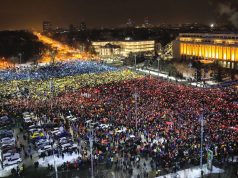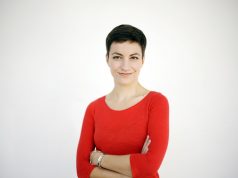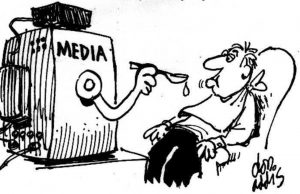The elections are over and since their outcome was known, leading international publications have joined voices in describing Rumen Radev as the “pro-Russian winner of the presidential race”. The President-elect denies these allegations, and has reiterated that “Bulgaria is a loyal member of the European Union and NATO” and he will defend this strategic choice, and all the talk suggesting that he was a Russian agent was orchestrated by “the same circles who wrecked Mrs. Bokova’s candidacy for the UN leadership.”
It evident, however, that back in August, BSP leader Kornelia Ninova was discussing the name and campaign of General Radev with Lieutenant General Leonid Reshetnikov, Director of the Institute for Strategic Studies of the Kremlin and former employee of the Russian Foreign Intelligence Service. Russian media also recognized Rumen Radev’s candidacy as being Kremlin supported and forecast a turn in Bulgarian foreign policy towards Russia, with the foreign policy adviser to the Russian President, Yuri Ushakov, stating that he expected “opportunities for more constructive relations.”
From all this it seems that if someone is launching a narrative for the pro-Russian image of Rumen Radev, it circles around Radev himself and Russia. There are those boasting of a “Day of Victory” as for them it is obviously very pleasing that a former NATO general will be sympathetic to the Kremlin. They are the ones who themselves admitted discussing Radev’s nomination with people close to Putin.
With his actions, however, Rumen Radev himself contributes to this image of his. On the meaningful date of November 10th, between the two rounds of elections, Rumen Radev gave an interview to one of the instruments of Russian propaganda – the magazine A-specto. In it he spoke of “wasted opportunities” from the South Stream, which, to recall, was suspended because of being contrary to EU Sanctions legislation and increased Bulgaria’s energy dependence on Russia.
Two weeks later – on 23 November – now as the already elected president, he gave another interview for A-specto – his third in the last two months – stating that his first act as President would be to refer to the Constitutional Court a motion to cancel the free trade agreement between the EU and Canada (CETA).
In support of this, Radev lists well-known supporting points of the Left against the trade agreement that have been repeatedly confuted, including by the European Commission. However, his words give a clear signal that one of his first actions will be directed against an EU policy, albeit a decision made by a difficult consensus within the Union.
A meeting of the newly elected President with representatives of the Russian Institute for Strategic Studies followed, whose Director Reshetnikov, shared that he had previously discussed Radev’s candidacy with Kornelia Ninova. On 24 November Rumen Radev met with the representative of the Institute, Elena Suponina and with the Chief Editor of the magazine Problemy natsionalnoy strategii (National Strategy Issues) Azhdar Kurtov. The meeting was attended by Assoc. Prof. Darina Grigorova of the Eurasian centre VIA EVRASIA, who had invited both Kremlin analysts in the country to give a series of lectures entitled “The situation in the Middle East and Central Asia in the world of cooperation between Russia and Bulgaria”.
Elena Suponina and Azhdar Kurtov meet with Rumen Radev.
Such actions by Radev, i.e. interviews for propaganda publications, opposing strategic European policies and meetings with Kremlin officials, only prove that not only he is not eager to put an end to the “manipulative” allegations that he is the Kremlin’s candidate, but on the contrary – before taking office, he hastens to bow to the “brothers liberators.”
To top it all, he attended the plenum of the Bulgarian Socialist Party (BSP), which observed a minute of silence and got to their feet in memory of the communist dictator Fidel Castro. So, one of the first foreign policy acts of Rumen Radev was to salute the Kremlin-backed tyrant who killed tens of thousands and violated the rights of millions.
In honour of the Comandante.
“Let me present my personal and your thanks to Mrs. Kornelia Ninova. With a leader like her who has the vision and the power to defend her decisions, looking ahead into the future and be responsible, I am assured that the BSP, building on this success achieved, will have the wisdom and responsibility to continue working for the good of the Bulgarian people”. Those were the words of the politically neutral President-elect Rumen Radev at the plenum of the BSP.
Meanwhile, he attended a premiere at the opera, which is commendable. We were spared the information whether such cultural events are part of the general’s and his wife’s life or simply a PR stunt for his new role. Hopefully, they will become a tradition.
Ultimately, which image is more convincing if we are to judge Radev by his deeds? This of the cultured European General from NATO or the other – that of the Russian proxy in NATO and the EU, who welcomes Eurasian lecturers and is applauded by propaganda publications.








